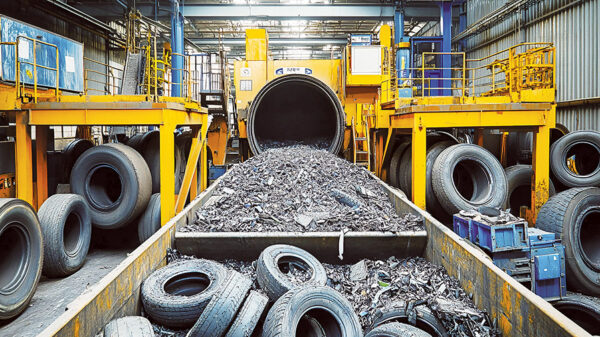Recology released its Sustainability Report, which showcases the company’s commitments to decrease greenhouse gas emissions, support a diverse workforce, and partner with local communities to advance resource recovery and help slow climate change.
The report, based on 2022 data, shows:
- For every ton of greenhouse gases emitted by the company’s operations, Recology and its partners avoided 10 times more greenhouse gas emissions through recycling and composting activities.
- Recology’s collection and processing activities supported the recovery of more than 1.3 million tons of recyclable and compostable materials, including more than 684,000 tons for composting at Recology facilities – a 12 percent year-over-year increase.
- Recology achieved its goal of powering its fleet with more than 90 percent renewable or alternative energy sources.
- Recology facilities ran on 90 percent renewable or carbon-free electricity.
“As the largest 100 percent employee-owned company in our industry, we owe our success to a passionate workforce that’s committed to meeting the ambitious goals we set in our pursuit of a world without waste,” said Recology chief executive officer, Sal Coniglio.
Recology announced new, five-year, sustainability targets as part of the report.
By 2028, Recology has committed to powering its facilities with 100 percent renewable or carbon-free electricity and using 75 percent collected landfill gas to generate renewable energy.
Coniglio said Recology will continue to make progress toward its goals by, for example, opting into clean electricity service levels, implementing solar installations at its facilities, and pursuing renewable energy projects at its landfills.
Recology pioneered curbside food scrap collection for composting in North America and will continue to pursue innovations in this important field to advance the circular economy and combat climate change, Coniglio said. Composting keeps materials out of landfills, helps local farms grow healthy food and save water, and reduces greenhouse gas emissions.
Recology owns and operates eight composting facilities in California and Oregon including two of the largest on the West Coast. The company is helping cities up and down California, including Los Angeles and San Francisco, comply with SB 1383, the statewide law requiring all municipalities to reduce landfilling of compostable materials by 75 percent.
Other highlights from the company’s sustainability report include:
- 10 times more owned and operated recovery facilities than active landfills
- 44 percent reduction in fleet fuel emissions over the last three years
- 50 percent of landfill gas collected is used to generate renewable electricity
- More than 41,500 MWh of renewable energy produced by landfill gas conversion engines — enough to power 2,270 US households for a year
- $60 million invested in advanced technologies to upgrade sorting capabilities in Recology recycling plants, also known as material recovery facilities (MRFs)
- 2022 greenhouse gas emission inventory verified by an independent third-party
- More than 60 percent of Recology stock is beneficially owned by employee-owners who are women and/or members of an ethnic minority group
- Recology also recently completed its first “materiality assessment,” which identified the environmental, social, and governance (ESG) topics most important to the company’s stakeholders and business. Coniglio said the main priorities identified—such as improving recovery and circularity, helping address climate change, protecting the health and safety of employee-owners, and upholding high standards of corporate responsibility – will play key roles in the company’s sustainability strategy.







